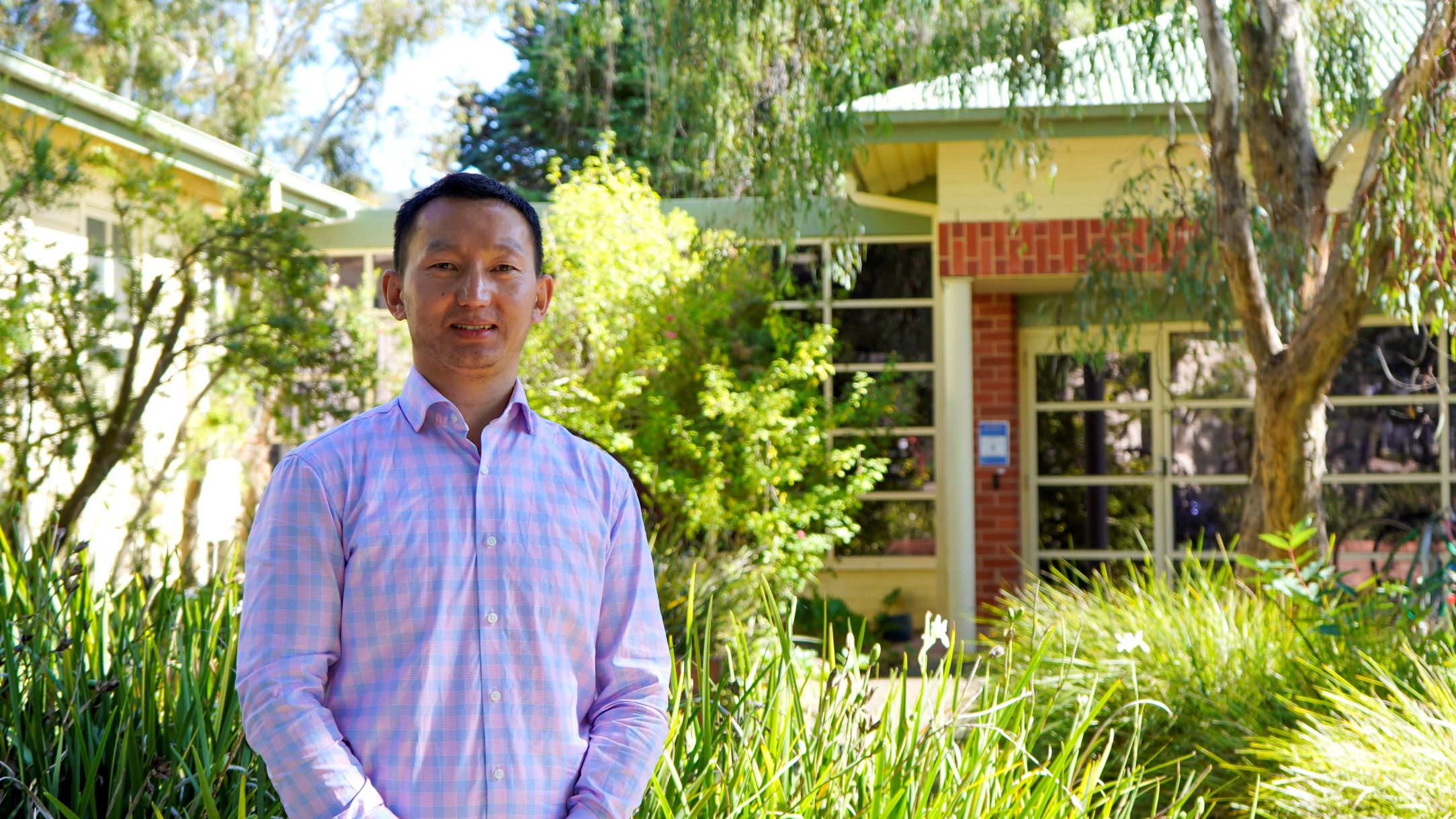Reviving Gross National Happiness in Bhutan

Bhutan is known not only for its majestic mountains, images of colourful prayer flags, and hillside villages, but for the concept of Gross National Happiness (GNH) – a philosophy used to value and measure collective happiness and wellbeing. With happiness viewed as fundamental by this tiny nation – how did Bhutan fare with the upheaval associated with the COVID-19 pandemic?
Like most countries around the world, Bhutan endured lockdowns and border closures that impacted the livelihoods of the Bhutanese people.
“People were unable to go to work, school, visit family and loved ones, or attend funerals. This was very upsetting for people,” says Dr Tsheten Tsheten, lead author on a recent publication* on COVID-19 and mental health in Bhutan.
“These actions negatively impacted mental health, and we saw an increased prevalence of domestic and sexual violence, as well as increased suicide in remote areas.”
Indeed, Bhutan was not immune to the mental health challenges thrown at them during the pandemic. People reporting mental health problems increased from 87 per 10,000 in 2016 to 156 per 10,000 in 2021. Rates of anxiety rose from 18 per 10,000, 55 per 10,000 in 2021. Similarly, depression rose from 9 to per 10,000 between 2011-19, to and 32 per 10,000 in 2021.
To alleviate the stressors associated with lockdowns, the Bhutanese government implemented a number of measures to counteract these pressures. These included home delivery of medicines, telehealth services, income assistance for people whose livelihoods had been negatively impacted, a mental health campaign for youths, and a new mental health facility.
“Perhaps, unique to Bhutan is the leadership role played by His Majesty the Fifth King, Jigme Khesar Namgyel Wangchuck. His Majesty launched the social welfare scheme to provide income to people whose livelihoods are affected by the pandemic, and ensured safety over every individual even endangering his own life by trekking highland hills and visiting high risk areas with ongoing transmission of COVID-19,” says Tsheten.
 Now based at NCEPH, Tsheten Tsheten grew up in Bhutan and is the lead author in the study of the impact of COVID-19 on mental health in Bhutan.
Now based at NCEPH, Tsheten Tsheten grew up in Bhutan and is the lead author in the study of the impact of COVID-19 on mental health in Bhutan.
Even with a primary focus on GNH, the pandemic also highlighted frail mental health services available in Bhutan. There are less than a handful of trained psychiatrists in the country, and they are located only in the capital, and poor mental health is highly stigmatised.
“Many people think mental illness is caused by witchcraft, evil spirits, or karma. And this stops them from getting help,” says Tsheten.
Thus an important step in alleviating the burden of the pandemic is to work towards destigmatising mental health illness, including a national agenda supporting this. Strategies also need to be in place that involve the community and monastic organisations to encourage positive attitudes towards people with mental illness.
Another way forward is the decentralisation of specialised care so that people living in remote and regional areas can access this support. This includes both physical infrastructure and promotion of ‘virtual’ telehealth initiatives. Healthcare providers also need to be trained in mental health triage and support.
“More needs to be done to recognize the pursuit of happiness and wellbeing as a fundamental human goal,” says Tsheten.
*Tsheten et al (2023) Impact of COVID-19 on mental health in Bhutan: a way forward for action, The Lancet Regional Health: East Asia. DOI: https://doi.org/10.1016/j.lansea.2023.100179
